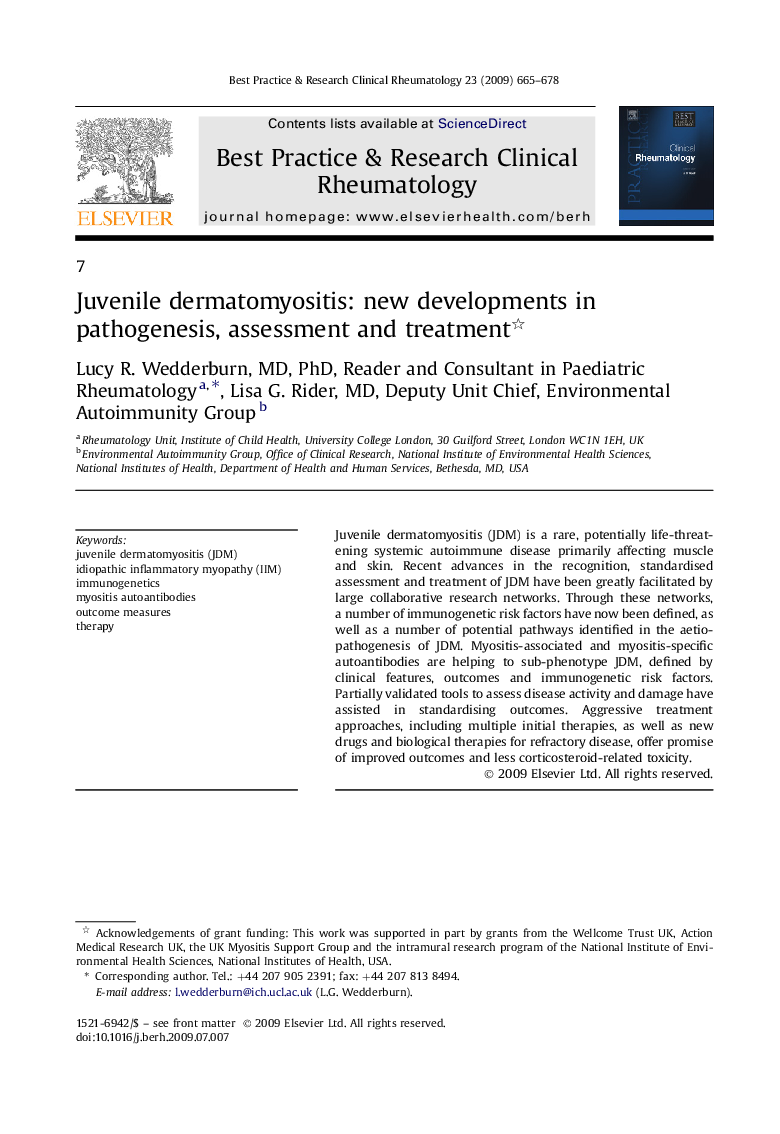| Article ID | Journal | Published Year | Pages | File Type |
|---|---|---|---|---|
| 3343534 | Best Practice & Research Clinical Rheumatology | 2009 | 14 Pages |
Juvenile dermatomyositis (JDM) is a rare, potentially life-threatening systemic autoimmune disease primarily affecting muscle and skin. Recent advances in the recognition, standardised assessment and treatment of JDM have been greatly facilitated by large collaborative research networks. Through these networks, a number of immunogenetic risk factors have now been defined, as well as a number of potential pathways identified in the aetio-pathogenesis of JDM. Myositis-associated and myositis-specific autoantibodies are helping to sub-phenotype JDM, defined by clinical features, outcomes and immunogenetic risk factors. Partially validated tools to assess disease activity and damage have assisted in standardising outcomes. Aggressive treatment approaches, including multiple initial therapies, as well as new drugs and biological therapies for refractory disease, offer promise of improved outcomes and less corticosteroid-related toxicity.
